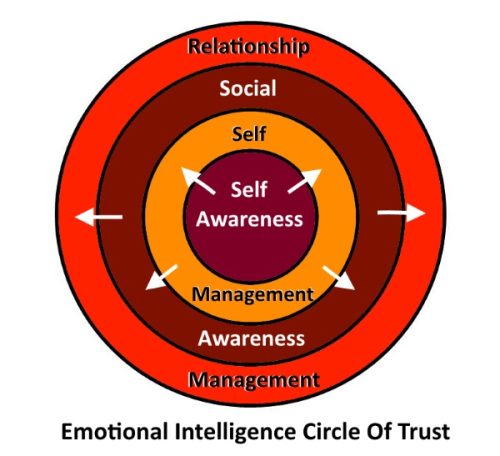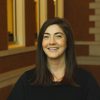
On September 10th-13th, I attended the NCLA Leadership Institute in Black Mountain, NC. The mission of the NCLA Leadership Institute is “to create opportunities for learning and skill building in leadership and mentoring”, and to “cultivate an improved understanding of self and others while inspiring participants to serve in leadership roles within the profession at local, state, and national levels”. In addition to the four-day retreat, participants in the Leadership Institute also engage in a year-long project (selected by the participant and the sponsoring library) and a mentoring group, attend a mid-year session in April, and participate in the 2025 NCLA Biennial Conference (Oct. 13-17, 2025).
There were 24 librarians in my cohort, including several public librarians and a small group of community college and academic librarians. The leadership institute mentors, planning committee, and presenters also represented a variety of library affiliations and included NCLA leaders from across the state. Overall, it was a wonderful experience and I truly valued the time to reflect and to connect with library professionals and colleagues from all over North Carolina.
The Institute sessions were engaging, and the discussions and activities were productive and enriching. Here are a few of the many takeaways that I gained from the Leadership Institute:
Focus on soft skills (self-awareness, reflection, emotional intelligence, active listening, etc.)
There were several sessions that centered around the development of soft skills (or interpersonal skills or people skills) and how these abilities and skills can contribute to professional relationships and work culture in general. Self-awareness tools and activities (such as reflective journaling, mindfulness activities, strengths surveys, emotional intelligence assessments and group reflection activities) were suggested as methods to become more self-aware and recognize strengths, areas for growth, and blindspots.

As someone who tends to rush through one thing to move on to the next project, I really appreciated a few quick and easy reflection activities that were suggested– the GLAD journal method and the Finch app (self-care meets Tamagotchi in an app). 360° feedback processes were also suggested to provide a comprehensive picture of a leader’s performance from those who work all around them, and can assist with building self-awareness and reducing blind spots.
Organizational Culture
Dr. Kawanna Bright (Assistant Professor of Library Science, East Carolina University) joined us for an informative and engaging session on organizational culture. Dr. Bright shared considerations towards the organizational culture including how privilege, patterns of behavior / perceiving / thinking / feeling, assumptions, and communication all contribute to how organizational culture manifests. Dr. Bright also considered how different areas/departments of the library may experience different organizational cultures and how both organizational (position, longevity, department, status) and non-organizational factors (race, gender, language skills, age, education level, etc.) can influence privilege and workplace experiences. Dr. Bright noted that leaders (both formal and informal) need to recognize and respond to aspects of workplace culture that are harmful or present inequities. Additional sessions on team building and conflict management also touched on how (formal/informal) leaders can be proactive in addressing workplace dynamics that present challenges.
Communities of Support & Mentoring
Throughout the Institute, we were reminded of the value of professional mentorship and encouraged to look for opportunities to be mentored and led (and that leadership can take many different forms). The NCLA LI presenters, planning committee members, and group mentors would frequently share stories of times when they were supported by colleagues and other library professionals, or times when they learned valuable lessons from coworkers and mentors. There was a sense of shared commitment towards moving the profession forward through sharing experiences and learning from one another. It was really touching to reflect on my own mentorship experiences here at ZSR (there are many of you; and some of you may not even realize you were serving in this role) and elsewhere that have helped shape my career and navigate different aspects of my professional and personal life. I am so thankful for having these growth opportunities and learning from my colleagues. As part of the NCLA Leadership Institute, I will be working with a mentor group in the coming year and I am looking forward to continued opportunities for growth, reflection, and connection.
Big Thanks!
Overall, this was a great experience for me and I am so thankful for all of the amazing work done by everyone involved with the 2024 NCLA Leadership Institute:
Presenters: Dr. Kawanna Bright, Wanda K. Brown, Brandy Hamilton, Juli Moore, Dr. Tiwanna Nevels, Samantha O’Connor, Libby Stone
Planning Committee Members: Dawn Behrend, Michael Crumpton, Joel Ferdon, Jenny Gerami-Markham, Jen Hanft, Melissa Kammerer, Rachel Olsen, Jenneffer Sixkiller, Meghan Wanucha Smith
Group Mentors: Amanda Cain, Tiffany Henry, Michele Lawrence, Laurie Lyda, Amy Mason, Beth Thompson
I’m still reflecting on this experience and will be continuing to engage with this program in the coming year, so if you want to chat more about it, you know where to find me!

11 Comments on ‘Meghan at the 2024 NCLA Leadership Institute’
This sounds like a great experience. Thanks for this report and your thoughts about what you learned. Plus- Wanda K. Brown? …couldn’t be better.
I am so pleased you are getting to participate in this! What a great program for participants and their home libraries!
Meghan, this sounds awesome! Thanks for sharing this experience!
Thank you for sharing your experience at the NCLA Leadership Institute Meghan! I’m looking forward to seeing you do bigger and better things. Goooooooo Meghan!
I’m glad you had the opportunity to attend this year’s Institute, Meghan. As someone who also tends to rush through things to move on to the next project, I’ll definitely be looking into the GLAD journal method. Thanks for sharing your experience!
What a wonderful opportunity! I’m so glad you were able to go!
Hooray for the continuing impact of the NCLA Leadership Institute! I was a member of the very first cohort and it was a life-changing experience. I’m glad you had an awareness-raising experience too!
Sounds like a good time. I’m a sucker for anything that involves personality assessment.
Thanks for sharing some of your insights from this wonderful leadership opportunity, Meghan!
Thank you for sharing, Meghan. This sounds like a wonderful conference. I am currently doing research with Dr. Bright, so I know her session must have been great!
What a great conference! What a great opportunity to focus on the really important things in leadership. I’m glad you got to attend and learn from these stellar members of the NC library community!!